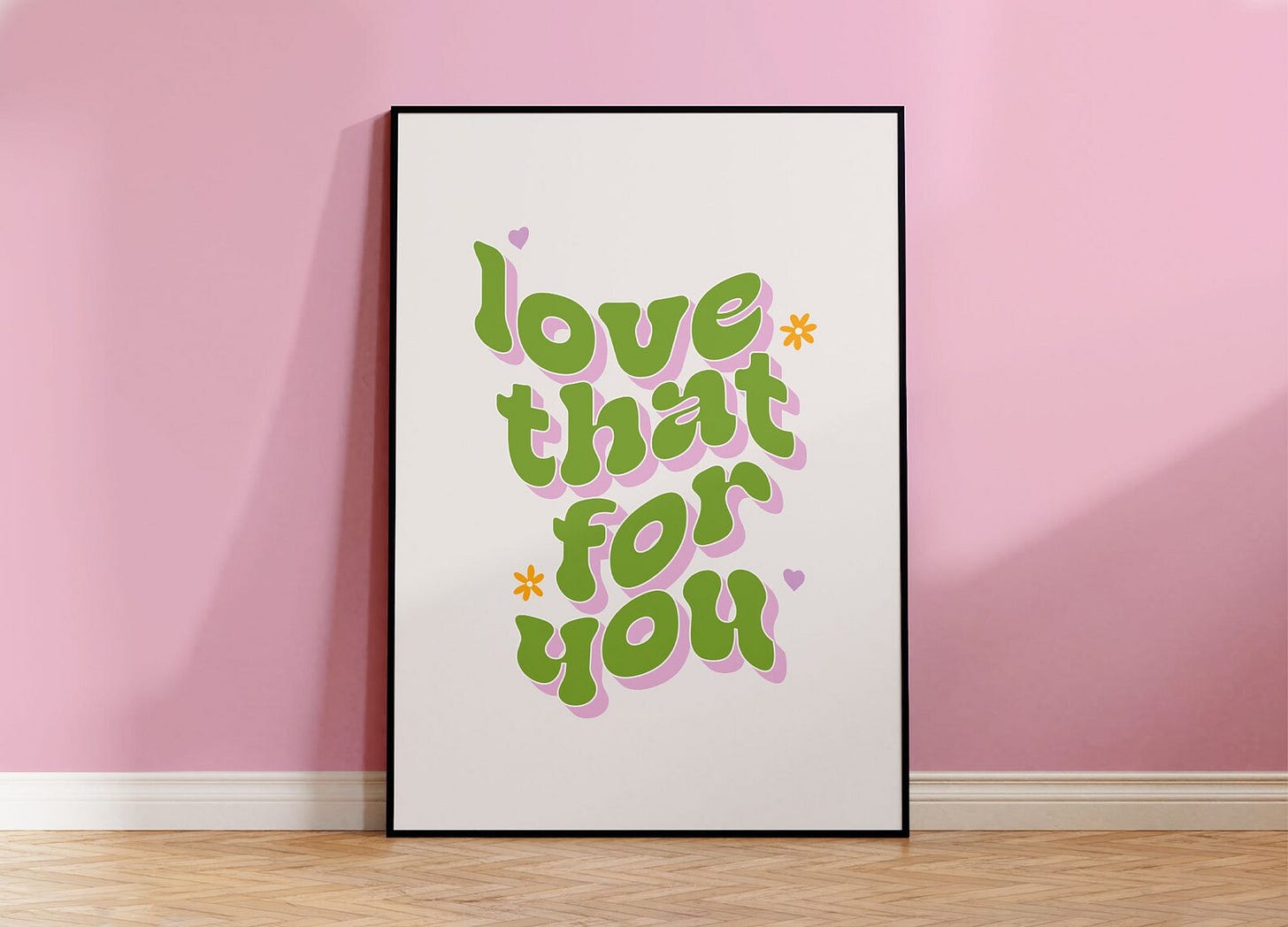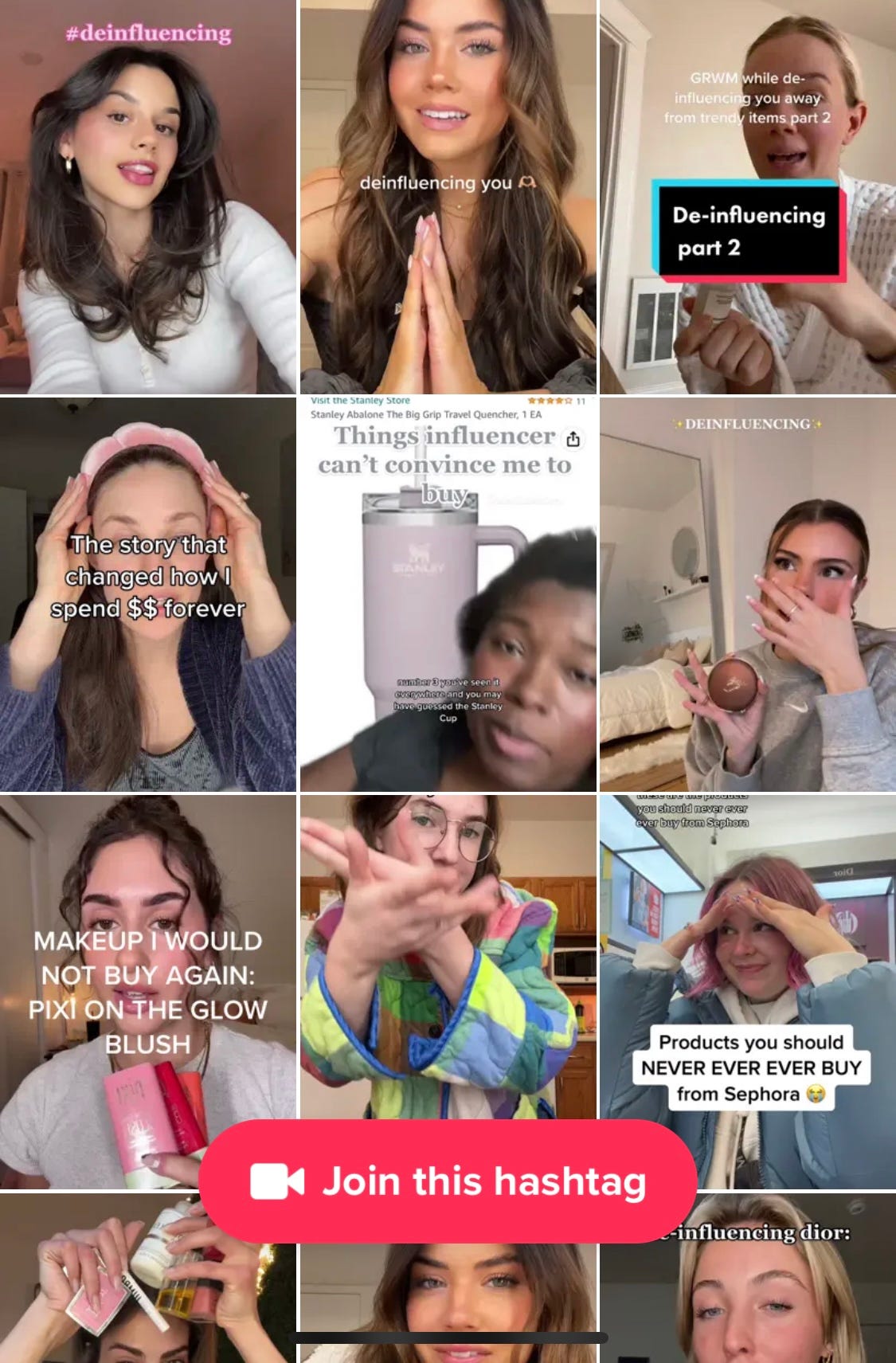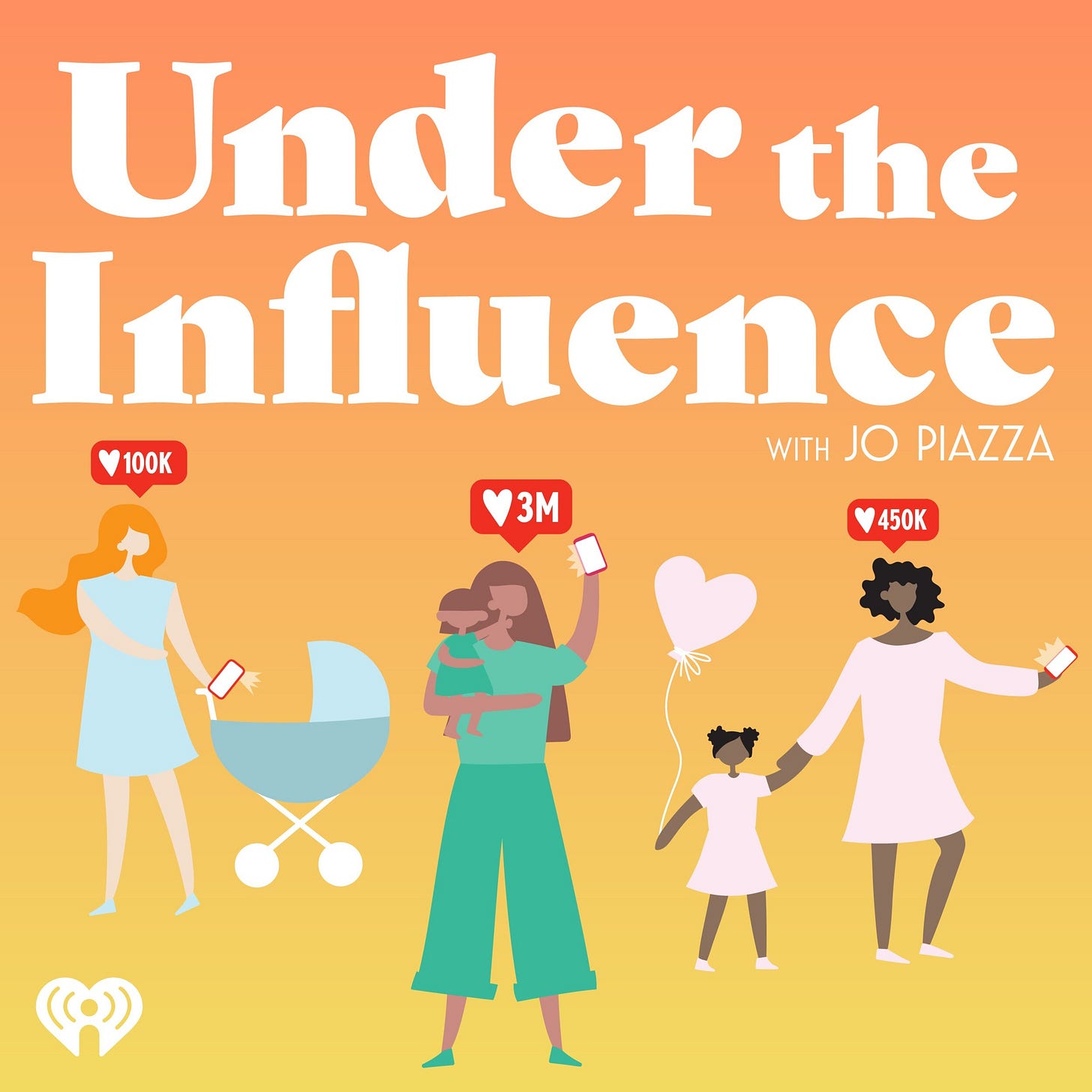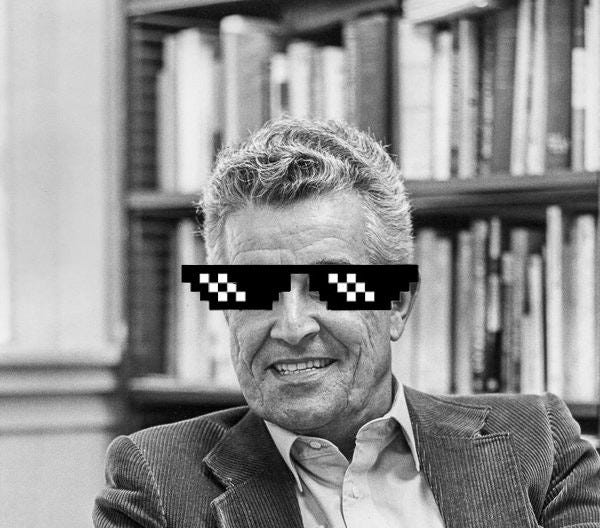There’s a conversation happening on tiktok right now about “de-influencing”. It goes something like this: a video will begin, and the creator will urge you to not buy a thing.
I cannot get enough.
I believe in my bones that the way to live sustainably on this planet (and to keep our own sanity) is to consume slower and to consume less.
Traditional influencer-marketing incites us to consume faster (that is, with less consideration) and to consume more.
I’ve been there so many times as a consumer. Especially after the birth of my first son in early 2020. While at home and up in the middle of the night, I would see “influencers” (particularly… ahem… “momfluencers”) recommend certain baby products, supplements, shoes, clothing… lifestyles… and I, as a new mother with an entire identity in-flux, endlessly scrolled in attempt to carve out new answers to existential questions:
“Who am I?”
“What do I want?”
“How do I want to live?”
I was open for suggestions.
I was open to being influenced.
And what’s unique about this time and age is that I wasn’t only looking to my direct circle of family, acquaintances, or friends as role models to help answer those questions.
Through social media, my circle of influence also included a new set of parasocial relationships served to me through an expert algorithm (my poison of choice was instagram).
It was as if, after posting a single picture in a hospital bed with a newborn on my chest, my entire “discover” page transformed to parenting (and specifically mom) content: influencers shared everything from energetic morning routines to magical stain removal tips for that stubborn yellow baby poop, including recommendations for products I could buy to experience the energy and magic for myself.
What I found most helpful were the posts that helped me navigate dressing my postpartum body. Pictures of stylish-yet-comfortable outfits were paired with a liketoknow (LTK) affiliate page that would earn the influencer a small commission if I purchased something they promoted.

At this point, I had built a career in the retail / consumer goods industry and was currently studying marketing as a full-time doctoral student. Yet in the hazy quest for figuring out parenthood, everything I knew about advertising and consumer behavior - the art and science of creating desire and then encouraging people to act on that desire through a marketplace transaction - went out the window. Despite knowing better, I was entirely susceptible.
A few months later, after some of the newborn fog lifted, I listened to Jo Piazza’s Under the Influence podcast series which does a phenomenal job of explaining the economic engine that is momfluencing. The whole story made sense: how and why momfluencing (an evolution of blogging) got its start, and how it had grown to permeate nearly every social media post in the typical feed. Momfluencing was one of those things that, perhaps if you understood it, you could be affected by it less.
Fast forward to this past summer, and I’m very pregnant with my second son. I’m older and wiser and surely, less susceptible. I don’t create a baby registry. I nest by taking bags of excess to the thrift store. We have everything we need. I have a clearer vision of the type of mother I want to be. There will be no existential questions. There will be no surprises.
As it turns out, the baby decided to come three weeks early, completely foiling my plan to begin maternity leave early and read on the couch while I still sent my toddler to daycare. (Instead, I found myself in labor sending last-minute emails to wrap up projects at work.)
When I came home from the hospital with my newborn, I took a look at the pile of books I had picked up from the library a few days prior. I made a pledge to try and read some of them, rather than just* falling into a deep hole of bad Netflix shows. (*I still put down some serious streaming content: Inventing Anna, The Bear, The Crown - no regrets.)
I’m really glad I stuck to my reading goal, because otherwise I would have missed Luke Burgis’ Wanting and my own soft introduction to the theory of mimetic desire, which put influencing into a whole new light for me, again.
I’m going to put it quite simply (because I’m going on day three of being iced-in with two little people under the age of three, and I’m running out of steam to over-intellectualize this).
The theory of mimetic desire puts forth the idea that desire is a practice of imitation.
We tend to model our behavior and desires based on the desires of others. We see someone have or do something that appeals to us, and then we carefully replicate the steps necessary to acquire or achieve that thing. Thus, our desires are mediated by our circles of influence.

So, who are we letting influence us? Who are our role models?
I want to emphasize the former question again: who are we LETTING influence us? Because we certainly possess the agency to curate the models in our circle of influence. Yes, there are algorithms that will suggest options for our consideration. Yes, there are loud and imposing points of view. But we are not hopelessly passive in this system of influencer marketing. Our desires may be shaped by others, but we get to choose who those others are.
For me, even being aware of the theory of mimetic desire has forced me to consider more carefully why I desire the things I do. It’s given me the power to separate what I want from what others want.
So I’ll leave you with this — some of the questions I ask myself, especially as it pertains to consuming:
Who is influencing me?
What are they selling (literally, or figuratively)?
And,
Are the things they have - and the things they want - the same things *I* want?
Because whether it’s a blouse, a perfect laundry room, a career, or anything else - it’s ok to appreciate something for someone else, and know that that thing isn’t the right thing for you.

It’s ok to not be influenced. Even by me. Forget everything in this post, if you want.
But what do you want?
—
Every Thursday I post a short, low-edited thought about consumer culture and/or conscious consumerism. These are just conversation starters - scratching at the surface of a deeper thing that I’m still discovering. Would love to hear your reactions, thoughts, questions, etc. below!








I enjoyed this article! It sure made me realize that I am easily influenced!! Very well written.
This reminds me of a discussion I had in Bible Study last year. Most ladies in the group are mothers with young kids and we talked about how fear has become a huge motivator for “mom purchases”. For example, if you don’t buy the most expensive organic food or the most expensive car seat, you’re not just being left out, you are a “bad mom” because you’re putting a price on your child’s health and safety. “What if” something happens to your kid and you could have prevented it by buying “x, y, z products”. I’ve noticed many influencers overuse the term “toxic” when it comes to food and beauty products as well. Again it makes you start to question how “good a mother you are” if you’re buying the wrong products.